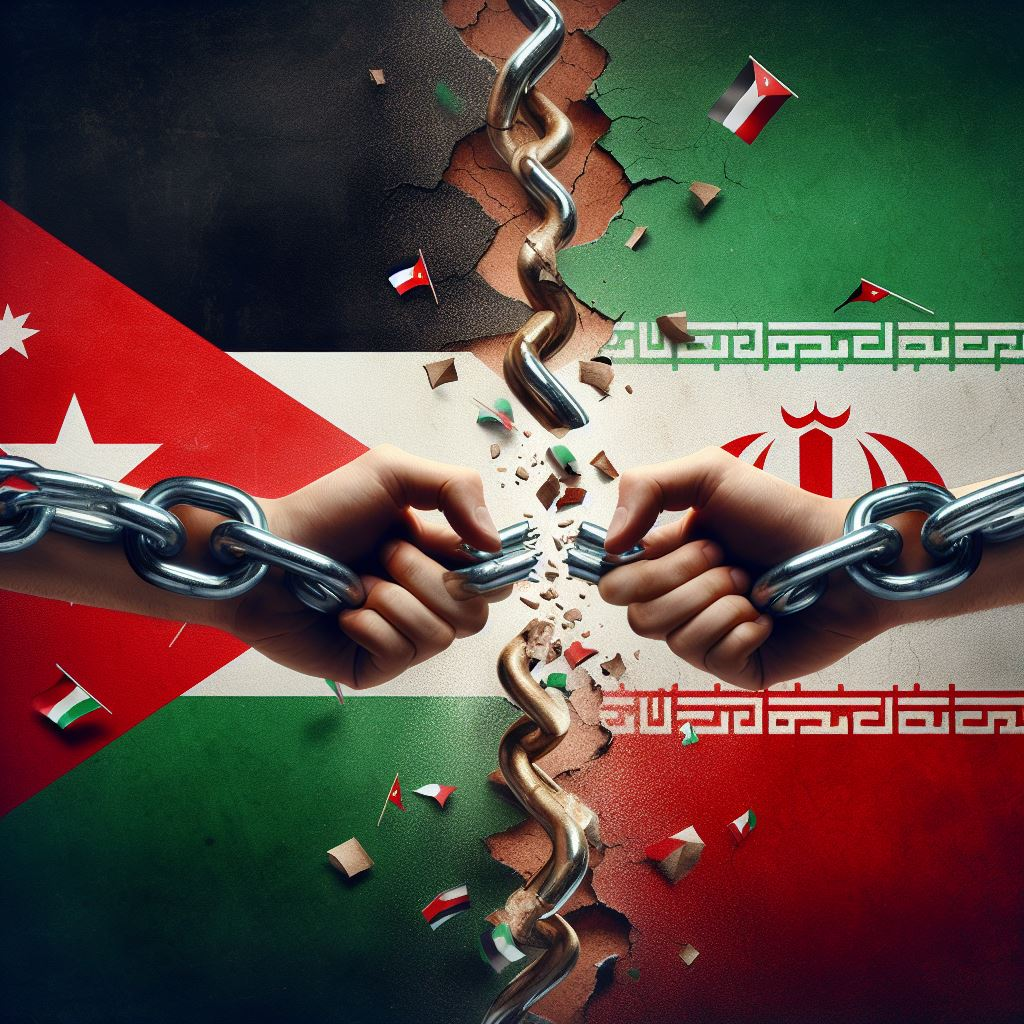Jordanian military aircraft intercepted numerous Iranian drones flying towards Israel from northern and central Jordan, prompting a stern warning from Tehran directed at Amman regarding its alleged support for Israel.
Iran Warns Jordan
According to two regional security sources, the drones were downed over the Jordan Valley while en route to Jerusalem. Additional drones were reportedly intercepted near the Iraqi-Syrian border, although details remain scarce.
Simultaneously, the US military, operating from undisclosed bases in the region, reportedly shot down several Iranian drones in southern Syria, specifically in Sweida and Daraa provinces, near the Jordanian border. This development underscores the complex dynamics at play in the region, with both Jordan and the United States responding to Iranian military activities near their borders.
The Islamic Revolutionary Guards Corps (IRGC) of Iran claimed responsibility for launching dozens of drones and missiles towards Israel, raising concerns of a potential escalation between the two regional adversaries.
Jordanian security sources had previously indicated readiness to intercept any Iranian drones or aircraft violating the country’s airspace. The heightened alertness included monitoring drone activities originating from Iraq and Syria.
In response to Iran’s threats, a military source, speaking to the semi-official news agency Fars, warned Jordan against supporting Israel during Tehran’s retaliatory actions. The source cautioned that Jordan could become the “next target” if it aligned itself with Israel.
Residents in various Jordanian cities near the Syrian border reported increased aerial activity, suggesting heightened tensions in the region. The Jordanian government, meanwhile, took precautionary measures by closing its airspace to all incoming, departing, and transiting aircraft.
Despite rumors of a state of emergency, Jordanian officials denied such claims, asserting that the closure of airspace was solely a precautionary measure due to the surrounding security situation.
Jordan’s strategic location, bordering both Syria and Iraq where Iranian proxy forces operate, as well as its proximity to Israel and the Israeli-occupied West Bank, has made it a focal point in regional conflicts. Concerns over potential spillover effects from conflicts involving Iranian allies, such as Hamas, have led Jordan to seek increased military assistance from the United States, including the deployment of Patriot air defense systems.
History of Iran – Jordan Relations
Iran and Jordan have shared a nuanced history marked by a blend of cooperation and tension, deeply influenced by geopolitical shifts and regional dynamics.
Ancient Connections and Persian Influence: Historical ties between Iran and Jordan trace back to antiquity, with periods of Persian rule leaving a lasting imprint on Jordanian culture. While both nations eventually embraced Islam, Jordan emerged as a Sunni stronghold, in contrast to Iran’s Shi’a-dominated landscape.
Cordial Ties Amidst Change: The era of the Pahlavi dynasty in Iran saw a period of amicable relations between the two nations. Despite occasional strains, including Iran’s ties with Israel, diplomatic channels remained open, with King Hussein of Jordan making notable visits to Tehran during this period.
Transformation Post-Revolution: The Iranian Revolution reshaped the relationship, leading to a decade-long hiatus in formal ties. Jordan’s alignment with Iraq during the Iran-Iraq War further strained relations. It wasn’t until 2003, with King Abdullah II’s visit to Tehran, that diplomatic engagement resumed. However, lingering tensions, fueled by Jordan’s Western alliances and economic disparities, persisted.
Regional Challenges and Syrian Conflict: Jordan’s stance against the Bashar al-Assad regime in Syria, an Iranian ally, added complexity to bilateral relations. Concerns over Iran’s influence in Syria heightened, leading to alleged collaborations with other regional powers to counter Iranian involvement.
Current Dynamics and Uncertainties: Present-day challenges include threats from armed groups along Jordan’s eastern borders, often perceived as proxies of Iran. As conflicts evolve, the Iran-Jordan relationship faces new uncertainties, shaped by shifting alliances and regional power struggles.
Iran and Jordan’s relationship reflects a tapestry of historical legacies and contemporary complexities. While cooperation remains possible, the intricacies of geopolitics continue to influence their interactions, shaping the trajectory of their future relations.
The recent escalation, including a deadly drone attack on US forces near the Syrian border in northeastern Jordan, underscores the volatile nature of the Middle East region and the challenges faced by countries like Jordan in navigating complex geopolitical dynamics.



